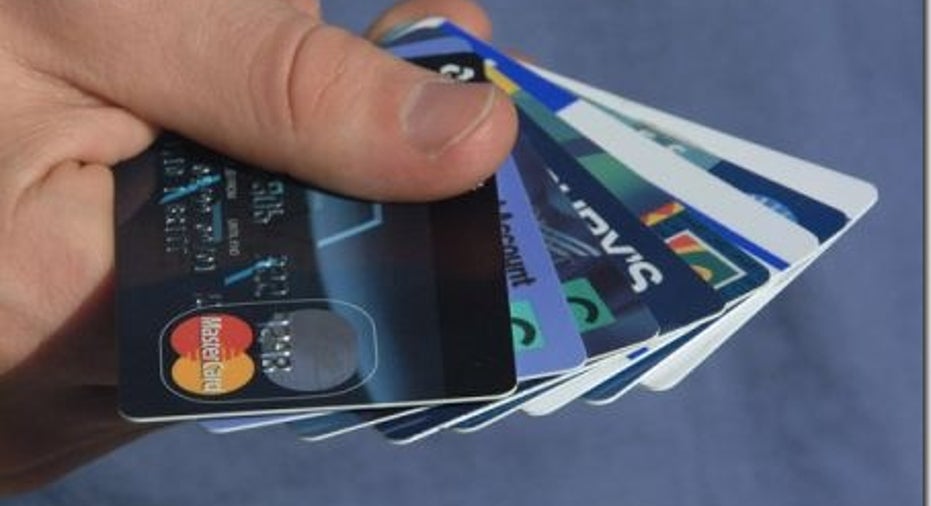What to Consider Before Applying for a Cash Back Credit Card

Dear Cashing In,
I've never had a cash back card, but I'm thinking about getting one. It all seems confusing -- 5% back here, 3% back there, 1% over there -- and hard to keep track of. Do you think cash back is a good deal? And what should I watch out for?
- Ellen
Dear Ellen,
Cash back cards can be a very good deal, cash being the most user-friendly reward. Given the human tendency to hoard points and miles or to go after pie-in-the-sky rewards that don't fit our lifestyles, there is something to be said for a payoff that accrues automatically and can be accessed and spent immediately.
In terms of usability, what's simpler than cash? The dilemma you're facing is which option will produce the most cash for you -- that is, net profit -- given your spending and bill-paying habits.
As it happens, this website offers a convenient way to compare cash back cards in one place . You're right that the variations seem endless at first glance -- different annual fees, no annual fees, high APRs, low APRs, sign-up bonuses, percentages for different types of purchases. So let's break it down.
First of all, you can eliminate one of those variables right off the bat -- the APR -- by paying your bill off in full and on time each month. If you do that, your account will never be charged interest, so it won't matter what the APR is. The average APR for cash back cards is 14.61% as of Jan. 24, but they can go as high as 25% (see current credit card rate averages).
If you do tend to carry a balance or you're prone to skipping a payment here and there, figure that in. How much did you charge last year and how much did you pay in interest and late payment fees? If you typically charge $1,000 per month, you will earn $120 in cash rewards a year from a card that pays a flat 1% on all purchases and charges no annual fee (1% of $1,000 per month is $10; multiply that by 12 months and you've got $120 per year). But if you pay $120 in late payment fees and interest over the course of a year, there goes the reward.
Sign-up bonuses range from $100 to 50,000 points (on the Citi ThankYou Premier Rewards card after $2,500 in purchases in the first three months). Those perks are nice, but they're just one-offs. If you plan to commit to this card, I'd pay less attention to bonuses and look harder at the kind of spending the card rewards versus its annual fees and other ongoing expenses.
Generally, the more you spend -- particularly in the higher-percentage categories -- the more likely your annual fee will pay for itself. For example, the American Express Blue Cash Preferred card charges a $75 annual fee but offers 6% cash back at supermarkets and 3% at gas stations and department stores -- in addition to the standard 1% on other purchases. If you live in a suburb with a family of six to feed and clothe and you're putting 25,000 miles per year on your car shuttling them around -- in other words, spending a ton at those high-percentage outlets -- that $75 annual fee could pay for itself fast. (AmEx also offers a no-annual fee version called Blue Cash Everyday which pays 3% at supermarkets and 2% at gas stations.)
If, however, you live in a city, take public transportation and buy groceries from a corner market, perhaps you'd be better off with the Citi Dividend Platinum Select Visa, which comes with no annual fee but pays (in addition to the standard 1% on other purchases) 5% cash back on fitness club fees, health care and utilities -- at least through March 31, 2012. Each quarter, this card offers new categories you can enroll in to get cash back.
Both of those cards require excellent credit. If you're still establishing your credit and do most of your shopping online, the Capital One No Hassle Cash Rewards card might work. It comes with a $39 annual fee and, along with the standard 1% cash back, offers generous percentages (up to 15%) to people with limited credit histories if they shop through Capital One's online portal, Perk Central, which represents more than 300 retailers.
Cap One also offers the Journey Student Rewards card with no annual fee, a standard 1% cash back on purchases, plus a 25% bonus on that monthly reward if you pay your bill on time. In other words, if you spend $1,000 in a month, you'll earn $10 cash back, plus another $2.50 if you pay on time. If you don't pay on time, you can kiss the next couple months' rewards goodbye. To make it easier to profit on this venture, you can sign up for text or email reminders -- not a bad idea for students!
I guess what I'm saying is: Make your decision based on your spending patterns and credit history. One reason there are so many variations on cash-back cards is that there are so many types of people and we all spend our money (and pay our bills) differently.



















